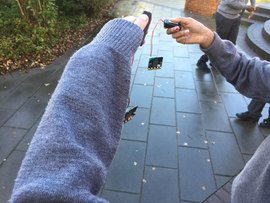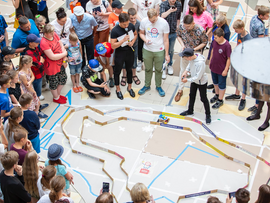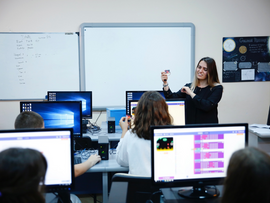Innokas Network
How to prepare children for jobs that don’t yet exist
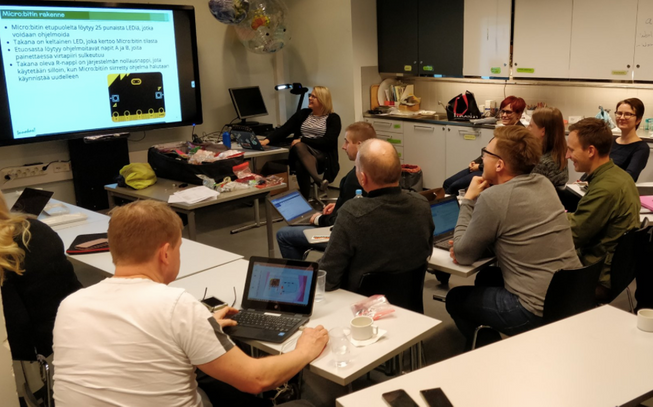
Innokas Network
To help their students become the innovators of the future, teachers in Finland are becoming innovators themselves. Innokas, a grassroots network of educators and organisations now based at the University of Helsinki, has introduced about 1,000 teachers to the “innovation process” – a teaching methodology that develops critical and creative thinking, promotes alternative working practices and makes use of technology.
Finland has a tradition of being creative and learning by doing. Innokas believed activities focused on making were perfect for preparing young people for the jobs of the future, jobs that may not even exist yet, so the micro:bit and its endless creative possibilities have been a core part of the project.

We made a rock-paper-scissors game, which was easy and fun to do. I loved everything about the micro:bit!

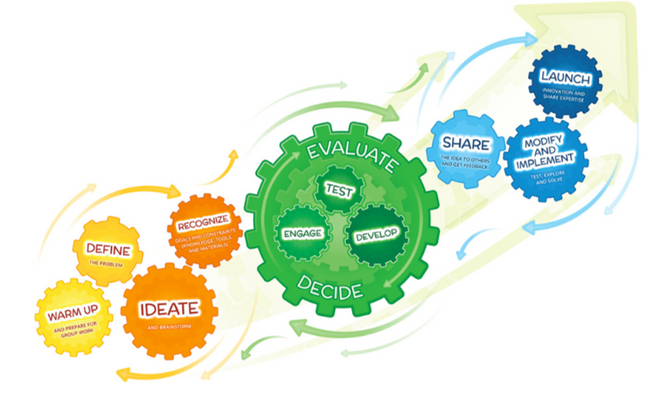
A diagram explaining the innovation process
University of Helskini
In two-day training sessions, teachers first grasped the basics of programming and then went on to learn the innovation process. This involves identifying a problem, brainstorming responses, defining goals and constraints, testing ideas and finalising a solution. The teachers used the process to come up with exciting micro:bit maker projects – they learned 21st-century skills in order to be able to teach those skills to their students. The educators returned to their classrooms with 10 micro:bits each and a plan to engage their students, aged 6-15, in experimental multidisciplinary projects.
As part of the initiative, the team also ran a study to discover its impact. When asked their opinion of the micro:bit as a tool for teaching programming, 90% of the teachers said it was good or very good, and 90% said they would use it again. Most of the students had no previous experience in programming, but four in five said they had fun learning to program. And four in five students said that after using the micro:bit, they believed anyone could learn programming.
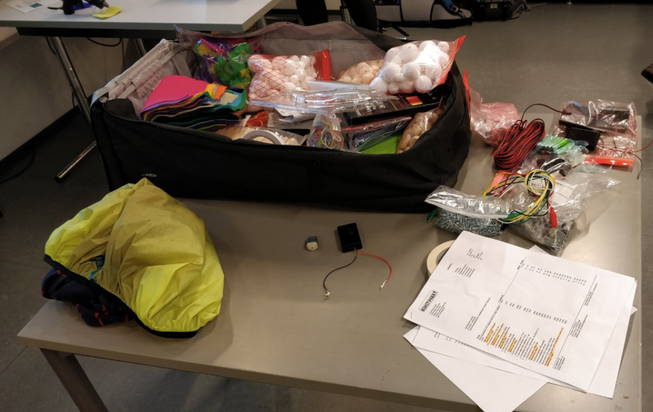
Maker materials for micro:bit projects
One 15-year-old student said: “Programming with the micro:bit was easy and fun, as well as a nice alternative and break from normal school work.” Another 14-year-old student said: “We made a dice and a rock-paper-scissors game, which was kind of easy and fun to do. I loved everything about the micro:bit!”
The pilot year of the project culminated in a national programming and robotics tournament in May 2019, at which 700 students competed. The next tournament will take place in Espoo, near Helsinki, in May 2020. Meanwhile, Finland is bringing its maker culture into the future: textile and woodwork spaces in many schools are being updated with digital fabrication tools to support young people to learn 21st-century skills.
